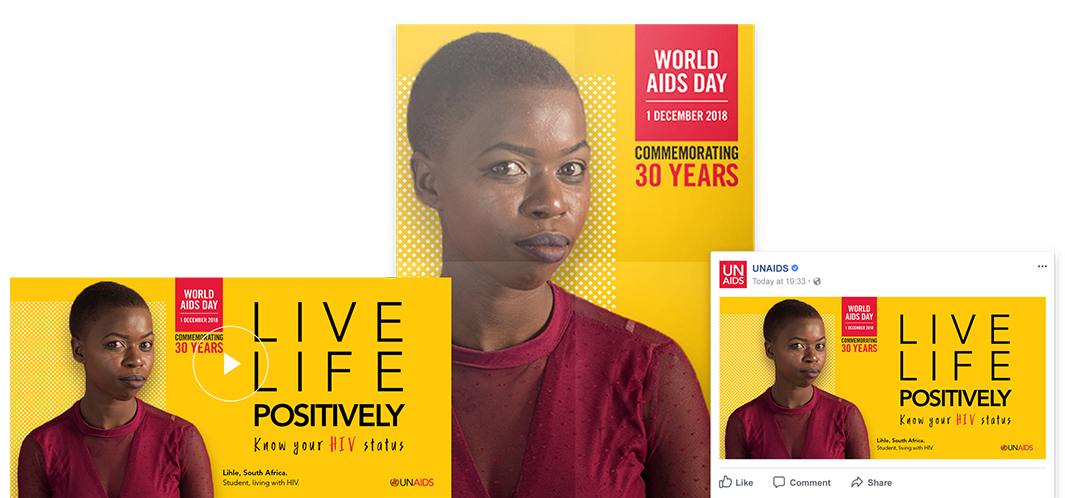An inspiration to others
Five years ago, Lihle Bhebhe started feeling unwell. She kept putting off a visit to the doctor for a check-up, hoping things would clear up, but eventually went to the clinic. There, a nurse suggested that she take a series of tests, including an HIV test.
“I was scared,” she recalled. “The nurse explained to me various scenarios and guided me. When my test came back HIV-positive, I met a peer counsellor,” Ms Bhebhe said. The peer counsellor comforted her and reassured her that she could live a long and healthy life with HIV.
“She made me believe in myself,” said the now 19-year-old from Nyanga, a township in Cape Town, South Africa. Once she got home, however, she cried. She thought she had let her mother down and so she didn’t dare tell her anything. Over time, she finally told her family and friends.
In the beginning, she explained, she felt like her HIV status was written on her forehead. “I feared everyone would know and things would never be the same,” Ms Bhebhe said.
Now she has become much more confident. “HIV does not define me and it’s important to share my story to help others,” she said.
Having just finished grade 12 at school and taking her medicine daily, Ms Bhebhe credits counselling and a peer support group for giving her so much strength.
“We share our experiences and it helps us to overcome our challenges together,” she said. The peer support group often focuses on alcohol abuse and rape, which afflict the community.
It was during a peer support group meeting that Makhulu Media met Ms Bhebhe. The production team, Sydelle Willow Smith and Rowan Pybus, wanted to explore ways to reach young people and test their knowledge about HIV. Their aim was to see if immersive virtual reality films could encourage young people to take an HIV test and improve relationships between patients and health-care workers by helping them to step into each other’s shoes.
Ms Bhebhe agreed to appear in a film and tell her story. “Lihle Bhebhe struck us as a person who, despite great difficulties in life, had come to a place where she wanted to use her voice to address how she felt about living with HIV,” said Ms Smith, who explained how Ms Bhebhe opened up to them during the filming. “There is something to be said about the power of not being afraid to use one’s voice,” she said.
Mr Pybus described the process of filming using a virtual reality camera supplied by Google. “When you seek to use media as a tool to educate and decrease stigma, you need to innovate,” he said. “Immersive media gives us a chance to reset mindsets in an engaging way.”
Ms Smith added, “You have to remember that in South Africa HIV is still very much present and there is still a huge issue with stigma, which creates barriers to young people getting tested.”
For Ms Bhebhe, the weeks of filming flew by. She described real happiness at appearing in the film. “I could be myself and this is such a powerful communication tool,” she said.
During one of the final scenes of the filming, the crew and Ms Bhebhe, along with the peer counsellor, climbed to the top of Table Mountain. As they looked at the ocean view, the two young women giggled, congratulating themselves on the tough hike. Ms Bhebhe said in a determined voice, “Through this journey, I know I will succeed.”
Photo credit: Sydelle Willow Smith
